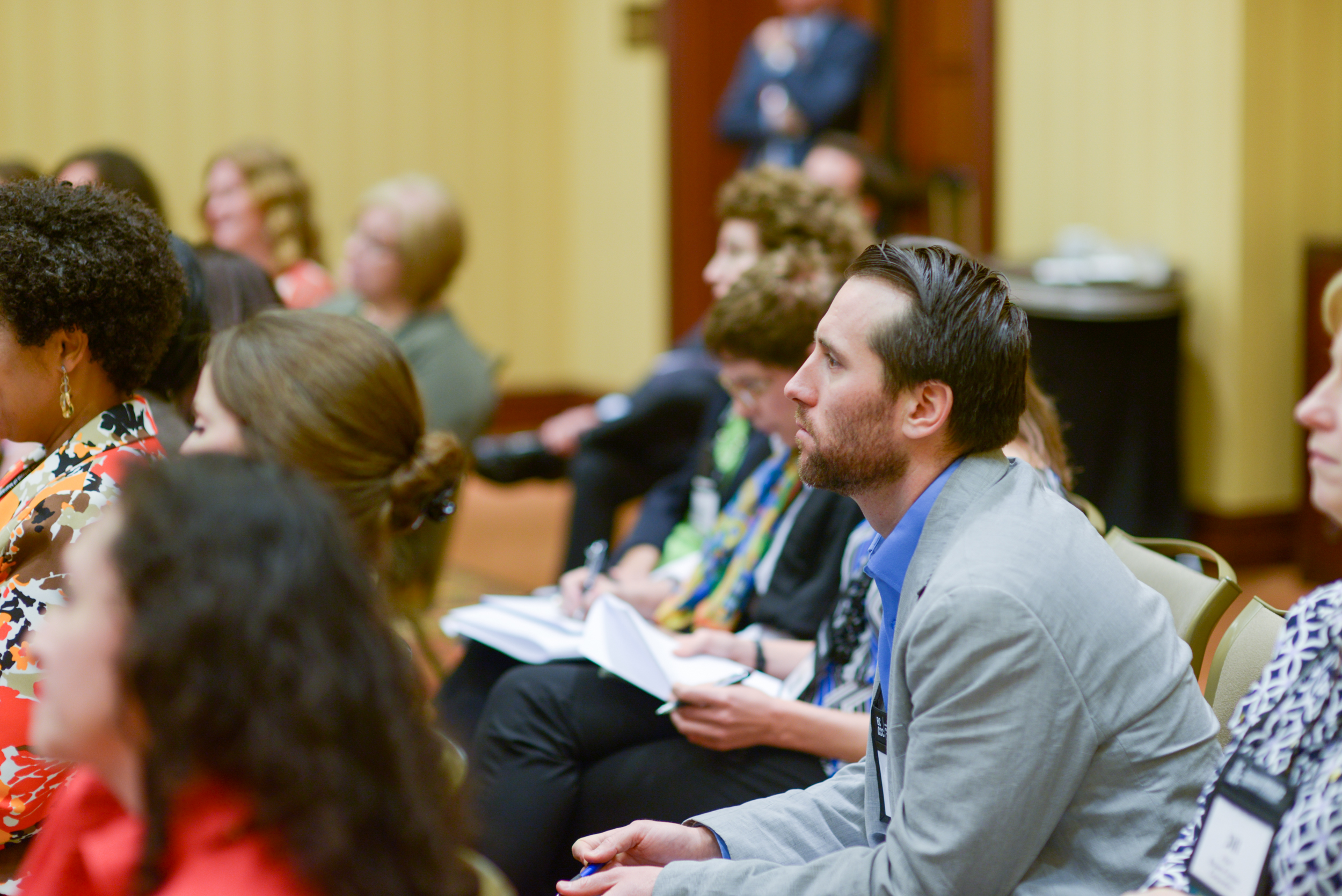
So many breakouts, which ones to choose?
As with any good conference, the most difficult decision—other than how full to fill your plate at the buffet line—is typically which sessions to attend. With up to seven sessions happening concurrently, it can be a tough choice. Breakout sessions on Monday at the 2015 International Corporate Citizenship Conference covered such topics as engaging veterans, transparency and governance, and engaging today's multi-generational workforce.
Here are highlights from two of the day’s popular sessions:
Making Sense of Reporting
A morning session on reporting frameworks was aptly titled Are You Kidding Me?! Another Reporting Framework? How to Make Sense of Reporting: Current and Future, as it captured the frustration experienced by reporters trying to understand the differences, similarities, and relationships between the various reporting frameworks and industry standards groups. Katherine Smith, executive director of the Boston College Center for Corporate Citizenship, moderated the session. She began by asking the panelists to provide background on their different frameworks and viewpoints
- Betty Cremmins, senior manager of CDP Supply Chain at CDP (formerly the Carbon Disclosure Project), explained that CDP asks companies to measure and report on the upstream and downstream effects of their products from cradle to grave. Its goal is to move companies from small incremental improvements to larger, aspirational ones.
- Nikki Mckean-Wood, director of corporate & stakeholder relations at the Global Reporting Initiative (GRI), explained that GRI was originally created as a reporting framework for responsible environmental conduct, but its scope has broadened to include social, economic, and governance issues.
- Tim Mohin is chairman emeritus of the Electronic Industry Citizenship Coalition (EICC), and director of corporate responsibility at AMD. EICC is an industry coalition dedicated to electronics supply chain responsibility. Mohin said that the coalition is a code of conduct by which members hold one another accountable for a range of issues, including labor, environment, health, safety, and management systems. EICC is focused not just on reporting but also on performance.
- Graham Sinclair is former principal of emerging markets at the United Nations Principles for Responsible Investment (UNPRI), and principal of SinCo – Sustainable Investment Consulting LLC. The UNPRI is an international network of investors working to put six Principles for Responsible Investment into practice to ensure that ESG issues are incorporated into investment decision making and ownership practices. The principles are voluntary and aspirational.
Although the panelists represented very different organizations, each with their own guidelines and frameworks, there was consensus on some of the issues and challenges for today’s corporate reporters and investors:
- There are a wide variety of frameworks, standards, guidelines, and initiatives.
- Companies who report are asking if this can be done more efficiently and effectively—can the whole reporting process be streamlined?
- Companies considering reporting for the first time may find the process overwhelming and don’t know where to start.
- Investors are frustrated as well. The information collected and reported is scattered across too many places and is not comparable.
- Despite all these challenges, the demand for this ESG information continues and there is not a one-size-fits-all solution.
- The frameworks themselves are beginning to work together, and encourage collaboration and consolidation.
- There will always be multiple frameworks, but the frameworks have commonalities. As a reporter, it is up to you to decide what is material for you and your company, and to take from the frameworks what works best for your company.
Engaging Today's Multi-Generational Workforce
Ages and Stages: Engaging Today's Multi-Generational Workforce in Your CSR Programs, addressed the challenges of engaging employees at each end of the age spectrum. Chip Minty, manager of corporate social responsibility at Devon Energy Corporation; Corinn Price, director of community involvement at Insperity, Inc.; and Jill Silliphant, corporate citizenship, US marketplace lead at Deloitte Services LLP, talked about how this issue plays out in their respective companies.
Bo Miller, teaching fellow at the Boston College Center for Corporate Citizenship and principal at NightFire Advisors LLC, kicked off the session with a few statistics from a Gallup report, State of the American Workplace. According to the report, 30 percent of employees are engaged and inspired at work, 50 percent are not engaged, and 20 percent are actively disengaged, meaning that their attitude can actually undermine the performance of the organization.
The good news is that community involvement and CSR is an important lever for employee engagement and retention. Here are some of the panel’s recommendations on how to engage employees at different ends of the spectrum:
For younger employees:
- Engage these employees early on. Let them know that being involved will help them be successful in their jobs.
- Understand what motivates them and harness their energy. If they are passionate about an issue, support this passion and let them engage in new, non-traditional ways. This is a great place to provide autonomy and reward creativity.
- Younger employees place greater value on time than money. This may make it more difficult to get these employees involved in employee giving campaigns, but they may be more likely to give of their time than older workers who have family obligations.
For older employees:
- More mature employees want to work on issues where they have experience, perhaps with an issue that has touched their lives. Support this enthusiasm where possible
- Utilize retirees when possible, especially where it makes sense. An example given by Silliphant was leadership development training offered to school principals.
- Offer board service as an encore career.
The bottom line: Respect the differences between the types of workers, and know that that no matter what the age, everyone wants to make a difference.
Want more conference updates? Subscribe to the Corporate Citizenship Blog to receive conference recaps, the latest research, and member insights all delivere to your inbox.
